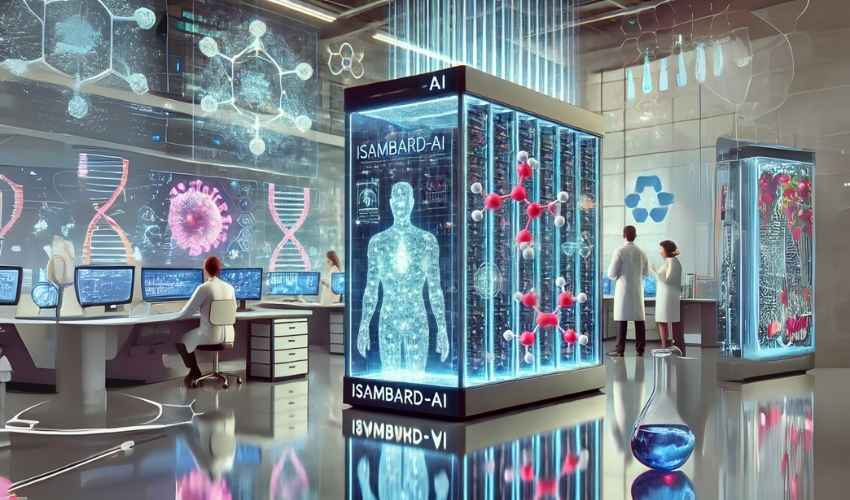A £225 million supercomputer uses artificial intelligence (AI) to create novel medications and vaccinations.
When fully operational this summer, the Bristol-based Isambard-AI computer will be the most powerful supercomputer in the United Kingdom.
On Monday, Prime Minister Sir Keir Starmer announced plans to "unleash AI" across the UK in an effort to stimulate GDP.
According to Simon McIntosh-Smith, a professor of high-performance computing at Bristol University, the Isambard-AI means that the UK "genuinely can be competitive with the world".
Prof McIntosh-Smith told BBC Radio Bristol: "We have actually got a little bit of the system up and running, and we already have people using it to do things like look for new drugs and vaccines to treat people."
He went on to say that the team is utilizing the computer to create vaccinations for Alzheimer's and other forms of dementia, as well as treatments for heart disease, emphysema, and many types of cancer.
One group of researchers is even using the technique to significantly increase the diagnosis of melanoma, a kind of skin cancer that affects a wide spectrum of skin tones.
"It can do a lot of the grunt work, a lot of the things that would just be beyond humans because they have so much thinking power and so much computing power," according to him.
But how does artificial intelligence work to develop new vaccinations and drugs?
According to Professor McKintosh-Smith, AI models can now "simulate how drugs actually work inside the body, at the molecular level right down to atoms and molecules."
"Many drugs work by targeting certain proteins in the human body and deactivating them or changing the way they behave," he told me.
Previously, scientists would have had to figure out how prospective treatments would interact with these proteins on their own, a procedure that required "a lot of experience and intelligence," as well as "educated guessing."
"You can only make so many [guesses]," Prof McKintosh-Smith noted, "and physically making things takes time, costs money, and so on, so how that sort of physical experimentation is quite limited."
However, he stated that a supercomputer like Isambard AI changes all of this by utilizing technology capable of accessing databases of millions of possible medications that may be tested in their early stages online rather than in a laboratory.
"Where artificial intelligence comes into it, is rather than trying all possible combinations of things it actually tries a whole bunch of random possibilities, looks at which are most promising, and then hones in on those."Artificial intelligence allows you to zoom in and quickly eliminate hot areas, and there is a lot of variation in how people use it," he said.
Prof. McKintosh-Smith commented: "We could be saving millions of lives with some of the things that we are talking about here and I find that tremendously exciting - it is brilliant to be able to actually be doing it right here in Bristol."
In a speech earlier this week, the prime minister stated that artificial intelligence has "vast potential" for revitalizing UK public services. He provided instances such as employing technology to assess roads for potholes or to diagnose diseases like cancer more rapidly.
When asked about the significant investment in Isambard-AI, Prof McIntosh-Smith stated that the "payback is potentially world-changing".
Prof McIntosh-Smith compared AI development to the launch of the internet or the invention of mobile phones, saying: "One of the advantages of something like Isambard-AI being funded by the government is that all of that work is then done in the public [interest], it is done by academics, and that work is much more open than it might be had it been done in a company."
When fully operational, the Isambard-AI, located at the National Composites Centre in Emersons Green, will be one of the "top ten fastest" supercomputers in the world.
Prof McIntosh-Smith stated, "We have done things that no one else has done before."
Supercomputers require enormous quantities of energy to operate, and the rapid growth of AI in general has raised severe worries about energy use.
Despite its aim to be as efficient as possible, Isambard-AI is no exception.
However, Prof McIntosh-Smith told the BBC that the waste energy it generates could have an unexpected benefit since it produces hot water.
"We are actually looking into using that to heat local homes and businesses," Prof McIntosh-Smith said.
"So if you happen to be living near Isambard in the future we might be able to heat your home with our waste energy."


























